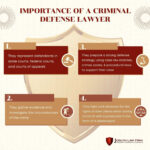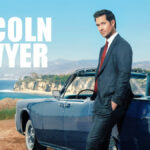Becoming an Uber driver offers a fantastic opportunity for flexible work and independent earning. However, navigating the regulations, especially in states like Massachusetts, can be complex. If you’re facing hurdles with your application or driver status, understanding your rights and knowing when to seek help from a lawyer for Uber driver issues is crucial.
Navigating Massachusetts Regulations as an Uber Driver
Massachusetts sets a high bar for rideshare drivers operating for companies like Uber and Lyft. Unlike federal regulations, each state dictates its own rules, and in Massachusetts, the Transportation Network Company (TNC) Division, a part of the Department of Public Utilities, is the governing body. This division oversees both rideshare companies and the drivers themselves. To become an Uber or Lyft driver in Massachusetts, two key certifications are necessary:
- A transportation network driver certificate from the rideshare company (like Uber); and
- A background check clearance certificate (BCCC) from the TNC Division.
Massachusetts law ensures that not just anyone can drive for these services. Furthermore, maintaining your eligibility is an ongoing process, as any changes to your driving record can lead to suspension. According to Massachusetts General Laws Chapter 159A½, Uber can only issue a driver certificate if you meet stringent criteria:
- You are at least 21 years of age.
- You have access to a vehicle that meets Uber’s standards.
- You maintain adequate insurance coverage.
- You are not listed on the National Sex Offender Registry.
- You do not have specific convictions within the last seven years.
- You have not accumulated more than four traffic violations or a single major traffic violation.
- You have successfully passed a comprehensive background check.
Decoding the Background Check Clearance Certificate for Uber Drivers
The background check clearance certificate (BCCC) is your official permission slip from the TNC Division to drive for a rideshare company in Massachusetts. The state employs “suitability standards” to assess applicants, categorizing potential disqualifications into three distinct types.
Mandatory Disqualifications: Automatic Bars to Driving
Certain criminal convictions or traffic citations result in an automatic and non-negotiable denial of a BCCC. For instance, if you have two or more convictions for Operating Under the Influence (OUI), you are permanently ineligible to receive a BCCC in Massachusetts.
Presumptive Disqualifications: A Closer Look at Your Record
The TNC Division may issue a presumptive disqualification even if an offense, like those resulting in a Continuation Without a Finding (CWOF), occurred more than seven years ago. This means that past incidents, even without a formal conviction, can still impact your ability to drive for Uber.
Discretionary Disqualifications: When Judgment Comes into Play
Even without mandatory or presumptive disqualifications on your record, the TNC Division retains the power to issue a discretionary disqualification. This can occur if “reliable information demonstrates that a Driver acted in a manner that resulted in jeopardy to the health, safety, or welfare of any person, or that a Driver’s provision of Services is not consistent with the public interest.” This broad clause allows for disqualification based on behaviors that, while not criminal convictions, raise concerns about public safety.
When Should an Uber Driver Seek a Lawyer?
If the TNC Division denies your BCCC application or suspends your driving privileges due to a disqualifying issue, you have the right to appeal. This appeal process is your opportunity to present your case and persuade the TNC Division to reverse its initial decision. This is where a lawyer for Uber driver issues becomes invaluable.
Navigating the appeals process alone can be daunting. An experienced attorney can assist you in:
- Gathering and organizing all necessary documentation to support your appeal.
- Constructing a compelling legal argument as to why the TNC Division’s decision should be overturned and a BCCC granted or reinstatement achieved.
- Preparing you for the appeal hearing, ensuring you understand the process and avoid potential missteps that could negatively impact the outcome.
A lawyer specializing in Uber driver appeals understands the nuances of these administrative hearings and can significantly increase your chances of a successful appeal.
How Can a Lawyer Help Uber Drivers with TNC Appeals?
At firms like the Law Offices of Patrick J. Murphy, the focus is on assisting prospective and current Uber and Lyft drivers through every stage of the TNC Division administrative appeals process. This includes situations involving:
- Denial of a background check clearance certificate, preventing you from starting to drive.
- Uber driver suspensions, halting your current ability to earn income.
- Lyft driver suspensions, facing similar income disruption.
- Appealing any unfavorable decision made by the TNC Division that impacts your driving status.
Need Assistance with a TNC Division Appeal? Contact an Uber Driver Lawyer Today.
If you are facing challenges in becoming an Uber or Lyft driver due to background check issues or are dealing with a suspension, immediate legal assistance can be critical. Reach out to the Law Office of Patrick J. Murphy for a free consultation. Attorney Murphy offers honest case assessments and will discuss how his expertise can help you navigate the complexities of your TNC Division appeal. For immediate help from a Boston rideshare administrative appeals lawyer, call (617) 367-0450 or contact us through our online form today.


